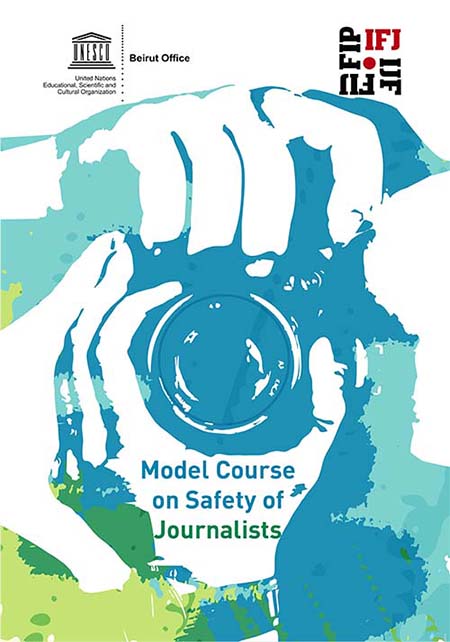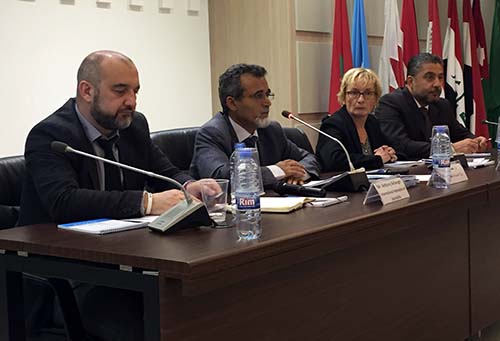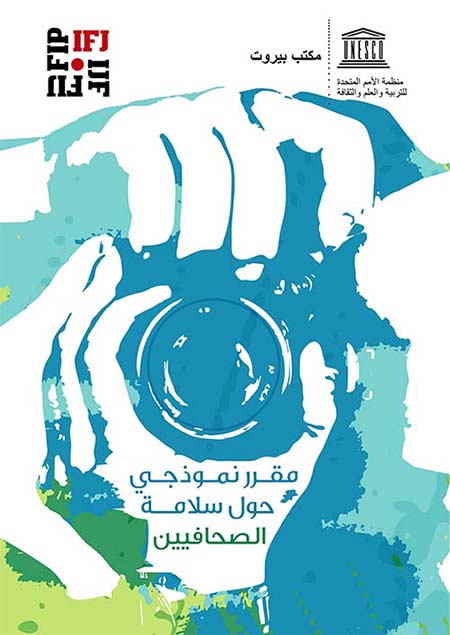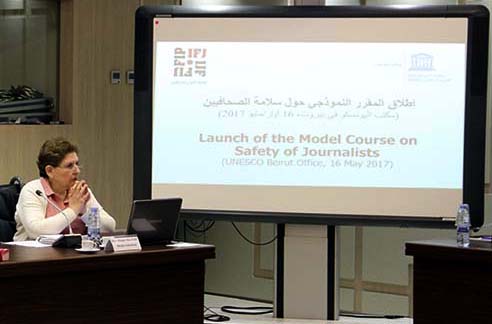UNESCO’s Beirut office and the International Federation of Journalists (IFJ) launched the “Model Course on Safety of Journalists,” to help lessen dangers to media workers by incorporating a safety course in university curricula across the Middle East/North Africa (MENA).

The course covers: a broad introduction to journalism safety and threats to media workers; planning for personal safety; personal health care and trauma in hostile environments; risk assessment; travel security; digital security; gender and safe reporting; covering demonstrations and civil unrest; human rights and humanitarian law; ethics; and, safety and investigative journalism.

IFJ’s Anthony Bellanger, Lebanese Education Ministry’s Ahmad Jammal and UNESCO’s Sylvie Coudray and George Awad
It was published and launched in Beirut, Lebanon in May 2017 in hard copy in English and Arabic. It is available as downloadable PDFs in both languages as a gift to academics and students.

Arabic version of safety course
Media Unlimited director Magda Abu-Fadil, Michael Foley, and Clare Arthurs prepared the 174-page English version to shed light on fatalities, injuries, and disappearances that are at record highs in the MENA region and prepare students for dangers they’re likely to face.
Lebanese University professor Hassana Rachid translated the book to Arabic.
Foley is a former journalist who moved into academia, as did Arthurs, a BBC journalist-turned-instructor and trainer.

Magda Abu-Fadil presents lessons in safety for journalists course
Abu-Fadil is a veteran journalist who has worked in the staid halls of academe, where media curricula in the MENA countries have not always kept pace with the skills needed and job market requirements.
